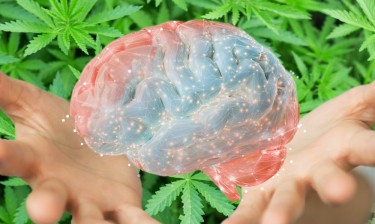
Brain fog—a common but often misunderstood condition characterized by confusion, forgetfulness, lack of focus, and mental fatigue—affects many people worldwide. It can arise from various causes, including chronic stress, sleep disorders, inflammation, anxiety, depression, and certain medical conditions. As medical cannabis gains popularity for symptom relief in conditions like chronic pain, anxiety, and insomnia, questions have emerged about its potential to alleviate brain fog. This article explores the current scientific understanding of medical cannabis and its effects on cognitive function, particularly in relation to brain fog.
Understanding Brain Fog and Its Causes
Brain fog is not a medical diagnosis but rather a descriptive term for cognitive dysfunction. People experiencing brain fog report difficulties with memory, attention, processing speed, and mental clarity. The underlying causes are diverse:
-
Chronic pain and inflammation can impair cognitive processes.
-
Sleep disturbances reduce the brain’s ability to consolidate memories and maintain alertness.
-
Anxiety and depression can cause concentration difficulties.
-
Side effects of medications or chronic illnesses may contribute.
Because brain fog is multifactorial, treatments that target underlying symptoms—such as pain, inflammation, and sleep—may indirectly improve cognitive function.
What Is Medical Cannabis?
Medical cannabis refers to the use of cannabis or its constituents, primarily cannabinoids like tetrahydrocannabinol (THC) and cannabidiol (CBD), for therapeutic purposes. THC is psychoactive and responsible for the “high,” while CBD is non-intoxicating and has anti-inflammatory and anxiolytic properties.
Patients use medical cannabis for a range of symptoms, including chronic pain, anxiety, insomnia, and neurological disorders. The effects on cognition, however, are complex and depend on factors such as dosage, cannabinoid composition, frequency of use, and individual biology.
Research Insights: Cannabis and Cognitive Function
Large-Scale Studies on Cannabis and Brain Function
A landmark study published in JAMA Network Open in early 2025 examined over 1,000 young adults aged 22 to 36 to assess how recent and lifetime cannabis use affects brain function during cognitive tasks. Using functional magnetic resonance imaging (fMRI), researchers found:
-
Heavy lifetime cannabis users (defined as those who used cannabis more than 1,000 times) showed reduced brain activity during working memory tasks.
-
63% of heavy lifetime users and 68% of recent users exhibited lower activation in brain regions critical for working memory.
-
This reduced brain activity correlated with poorer performance on tasks requiring retention and manipulation of information, such as following instructions or solving problems.
The study highlights a dose-response relationship: greater cannabis use was associated with progressively lower brain activation during cognitive tasks. These findings raise concerns about the potential long-term cognitive effects of heavy cannabis use, especially on working memory.
Contrasting Findings in Medical Cannabis Patients
In contrast, longitudinal studies of medical cannabis patients suggest different outcomes. A 12-month observational study of patients using medical cannabis for symptoms like anxiety, depression, pain, and insomnia found no significant cognitive decline; rather, some patients demonstrated improvements in executive function and clinical symptoms over time. Key points include:
-
Executive function (planning, decision-making, cognitive flexibility) improved or remained stable.
-
Verbal learning and memory performance generally remained stable.
-
Clinical improvements, particularly with higher CBD exposure, correlated with better cognitive performance.
-
The study suggests that medical cannabis patients, who differ from recreational users in motives, product selection, and age of onset, may experience cognitive benefits linked to symptom relief.
Acute Effects and Cognitive Performance
Research from Australia involving 78 patients assessed the acute cognitive effects of vaporized cannabis or cannabis oil. Findings showed:
-
No measurable impairment in information processing speed, divided or sustained attention, or inhibitory control after medical cannabis use.
-
Some negative effects on mental flexibility and visuomotor attention were observed, but the clinical significance remains unclear.
-
Patients appeared to develop tolerance to acute cognitive effects, suggesting that regular medical cannabis users may experience fewer cognitive disruptions.
How Medical Cannabis Might Help Brain Fog
Medical cannabis may improve brain fog primarily by addressing its root causes:
-
Pain Relief: Chronic pain can consume cognitive resources; reducing pain with cannabis may free mental capacity.
-
Anti-Inflammatory Effects: CBD’s anti-inflammatory properties may reduce neuroinflammation linked to cognitive dysfunction.
-
Improved Sleep: Cannabis, particularly THC-containing products, can enhance sleep quality, which is crucial for cognitive health.
-
Anxiety Reduction: CBD and balanced THC:CBD formulations may alleviate anxiety, a common contributor to brain fog.
By improving these symptoms, patients often report clearer thinking and better focus. One researcher noted, “We thought we might see some problems with cognitive function… But people actually felt like they were thinking more clearly” when using medical cannabis for symptom management.
Risks and Considerations
Despite potential benefits, cannabis use is not without risks:
-
Heavy or Long-Term Use: The large-scale study indicates that heavy cannabis use can reduce brain activation and impair working memory[1][6][8]. This is particularly concerning for young adults whose brains are still developing.
-
THC vs. CBD: High THC concentrations can impair cognition, especially with recreational use. CBD may counteract some negative effects but requires more research.
-
Individual Differences: Genetics, age, mental health status, and prior cannabis exposure influence cognitive outcomes.
-
Tolerance and Dependence: Long-term use can lead to tolerance, requiring higher doses, and in some cases, cannabis use disorder.
Clinical and Public Health Implications
As medical cannabis use expands globally, understanding its cognitive effects is critical for clinicians and patients. Current evidence suggests:
-
Medical cannabis, when used judiciously and under medical supervision, may improve brain fog symptoms linked to pain, inflammation, anxiety, and sleep disorders.
-
Heavy recreational use, especially starting in adolescence, may impair cognitive function, particularly working memory.
-
More research is needed to define safe dosing, cannabinoid ratios, and patient populations that benefit most.
-
Patients should be informed of both potential benefits and risks to make educated decisions.
Conclusion
Brain fog is a complex symptom with multiple causes. Medical cannabis offers promising relief for brain fog when it stems from treatable conditions like pain, inflammation, anxiety, or sleep disturbances. Longitudinal studies show that medical cannabis patients may experience cognitive stability or improvement, especially with formulations rich in CBD. However, heavy or recreational cannabis use can negatively impact brain function, particularly working memory.
Individuals considering medical cannabis for brain fog should consult healthcare providers to tailor treatment, monitor cognitive effects, and balance benefits against risks. Ongoing research will continue to clarify how cannabis can be safely and effectively integrated into cognitive health management.
CANNABIS AND THE MIND, READ ON...
WHAT WE KNOW ABOUT CANNABIS TREATMENTS FOR ALS!






